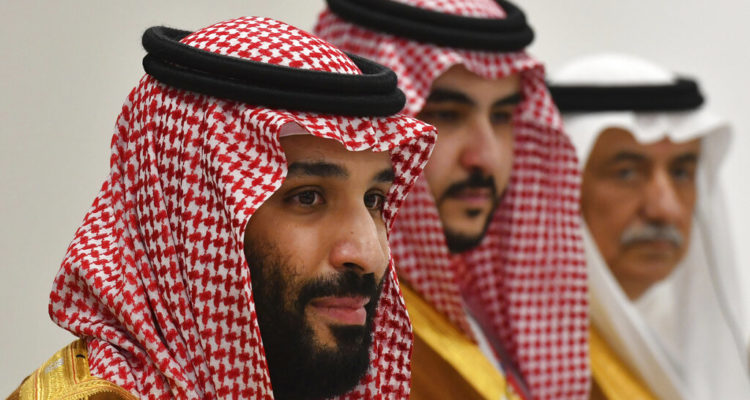Saudi Arabia’s de facto ruler accused the Israeli military of committing collective genocide in Gaza.
By Debbie Weiss, The Algemeiner
Saudi Arabia’s de facto ruler accused the Israeli military of committing “collective genocide” in Gaza while also pressing Israel to respect Iranian sovereignty, amid reports that Tehran has postponed its planned attack on the Jewish state.
Crown Prince Mohammed bin Salman’s remarks, made in Riyadh on Monday during a summit of leaders of Islamic nations, underscored the evolving rapprochement between the erstwhile archenemies Iran and Saudi Arabia.
The crown prince, also known by his initials MBS, urged the international community to demand that Israel “respect the sovereignty of the sisterly Islamic Republic of Iran and not to violate its lands.”
The two regional heavyweights restored relations last year after decades of animosity.
MBS’s anti-Israel rhetoric came days after Donald Trump’s victory in the US presidential election. For Israel, the statement from Riyadh may signal a setback to the normalization process with Saudi Arabia, a long-sought goal within the framework of the Abraham Accords, brokered by Trump during his first term in the White House, that has seen Israel establish formal ties with several Arab states in recent years.
According to a Sky News Arabia report published two days later and citing Iranian officials, Tehran has shelved a planned third direct strike on Israel, with the delay attributed to possible forthcoming diplomatic talks with Trump. Israel Hayom published a similar report the following day, citing officials in Jerusalem familiar with the matter.
Iranian First Vice President Mohammad Reza Aref expressed his hope that the incoming Trump administration would put a stop to Israel’s campaigns against its terrorist proxies, Hamas in Gaza and Hezbollah in Lebanon.
“The American government is the main supporter of the actions of the Zionist regime [Israel], and the world is waiting for the promise of the new government of this country to immediately stop the war against the innocent people of Gaza and Lebanon,” Aref said at Monday’s gathering.
Observers noted that Saudi Arabia’s shift could stem from both domestic and regional considerations. For the kingdom, improving relations with Iran is a strategic move to de-escalate conflicts in Yemen, where both countries have backed opposing sides. By opening diplomatic channels with Iran, Saudi Arabia also aims to reduce its dependence on Western security guarantees amid growing regional autonomy. According to Dr. Eyal Pinko, a Middle East expert who served in Israeli intelligence for more than three decades, Saudi Arabia is also under pressure from France, a major arms supplier, to maintain a moderate stance and promote regional peace.
“Saudi Arabia understands [it] cannot rely on the Americans” for arms, Pinko told The Algemeiner.
For its part, Iran may be seeking closer ties with the Gulf kingdom as a result of recent Israeli operations that have decimated the senior leadership of Hezbollah, Iran’s most influential proxy in the Arab world that has long served as a strategic partner.
“Iran is spreading its bets all around, not to be on one side or another,” Pinko said.
Hezbollah, along with Hamas in Gaza, had in the past been blacklisted as terrorist groups by Riyadh.
The New York Times last month cited a Saudi tycoon with ties to the monarchy as saying that the war in Gaza has “set back any Israeli integration into the region.”
“Saudi Arabia sees that any association with Israel has become more toxic since Gaza,” Ali Shihabi told the newspaper.
In another blow for Saudi-Israel relations, Riyadh announced it would revoke the license of the Saudi news broadcaster, MBC, after it labeled the late Hamas leader Yahya Sinwar a terrorist.
But according to Pinko, the chance of Saudi-Israel normalization is not entirely lost, pending a ceasefire.
“If nothing extreme happens with Iran until Jan. 20 [when Trump takes office], I believe that the Abraham Accords will come back to the table,” he said.





